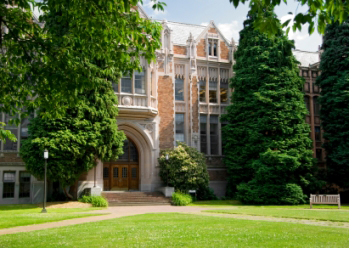 HAMILTON (CUP) ? ?I just find it really boring the way it is taught,? said high school student Chelsea Ladd.
HAMILTON (CUP) ? ?I just find it really boring the way it is taught,? said high school student Chelsea Ladd.
Ladd is a Grade 12 student at Bishop Ryan Catholic Secondary School in Hamilton, Ontario, and her apathy is not uncommon.
According to a panel of experts speaking in a series facilitated by the Ontario Centres of Excellence, students are taking less of an interest in science-based curriculum because of negative stigmas, and this poses a problem at the university level.
Ladd says she finds the sciences boring because she is more of a hands-on person, but counsellor Laraine Byrnes says students are just taking the path of least resistance.
?They take the compulsory that they have to, but as soon as there’s an opportunity not to do something difficult, they want to do something That’s relatively easy,? said Byrnes, head of student services at Bishop Ryan.
She says students are more likely to take another phys-ed course or sit in on a drama class instead of taking something harder, like chemistry or biology.
?If you look at the universities? acceptance for science at [Hamilton’s McMaster University], It’s 90s. The kids realize right away that they’re not going, and they turn around and choose social sciences,? said Byrnes.
She says when courses involve constant homework, studying, and memorization, students will opt for something else.
Reni Barlow, executive director of the Youth Science Foundation Canada, says It’s not the students? fault.
?High school science is really boring. For the most part, kids don’t have a particularly good experience,? said Barlow. ?It comes across as something to be memorized, that science is finished, and the answers are in the back of the textbook.?
One project the YSFC focuses on now is called Smarter Science. Barlow says resources will be available both on the web and in hard copy to support the development of inquiry- and project-based science.
Barlow says science is actually a highly creative endeavour and is more than just memorizing and reading things out of a textbook.
?Ten to 15 years ago, there was a big swing in the curriculum that shifted the emphasis toward content and away from the inquiry skills, problem solving skills, and the connection to science in society,? said Barlow.
He says that new changes have already been made this year in the elementary science curriculum that bring the focus more toward what makes science fascinating. Changes to the high school curriculum arrive next September.
?The new curriculum will help, but what’s even more required is a set of master resources and frameworks to help teachers interpret that curriculum and offer it up as classroom experiences that are actually engaging,? said Barlow.
Prerequisites for post-secondary are strict, and if students drop science in high school early on, they often have to change their plans for university.
Despite concerns at the high-school level, the Faculty of Science at McMaster is seeing more applications than last year.
The faculty recently split the program up into separate streams in an effort to make it easier for students to focus on exactly what they came to learn. This has resulted in slightly easier admission requirements, as not all of the sciences and maths in high school are required for each stream.
Applications in environmental and earth sciences have increased by almost 30 per cent this year, while the math and stats program has seen a jump of just under 20 per cent. The only science program with fewer applications is life sciences, which dropped 0.3 per cent, or about 20 students.
Post-secondary applications are up this year for all programs.
Graduating student Chelsea Ladd now plans to go to university for law or insurance, but her original plan to get into health has fallen by the wayside because of the science requirements.
?I wasn’t really encouraged to take math and science,? said Ladd. ?Still, I almost wish that I talked to a guidance counsellor earlier, because I would have liked to get into health and nutrition.?


